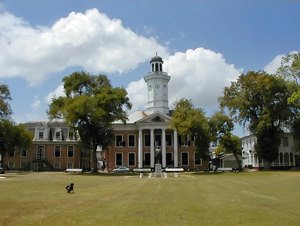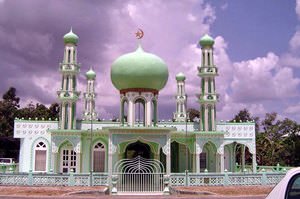 Surinamese celebrate generally accepted and well-known holidays like Christmas and Easter, as well as special ones, reflecting the country's unique path. December 5 marks the birthday of the Blessed Pope, who, by analogy with St. Nicholas, is an elderly man who arrived in Suriname on a ship. In the Suriname version, after receiving independence from Holland, the saint changed his name and became black. On the night of December 6, the Blessed Pope and his servants give gifts to all children of the country. It is customary to leave cookies and milk before bedtime so that the main hero of the holiday and his servants can have a bite.
Surinamese celebrate generally accepted and well-known holidays like Christmas and Easter, as well as special ones, reflecting the country's unique path. December 5 marks the birthday of the Blessed Pope, who, by analogy with St. Nicholas, is an elderly man who arrived in Suriname on a ship. In the Suriname version, after receiving independence from Holland, the saint changed his name and became black. On the night of December 6, the Blessed Pope and his servants give gifts to all children of the country. It is customary to leave cookies and milk before bedtime so that the main hero of the holiday and his servants can have a bite.
Small Suriname cannot boast as much entertainment for tourists with children as neighboring countries. However, if you look closely enough, here you …
Read further
Read further
Good shopping opportunities are always a nice bonus to vacations in any country. When there is a desire to buy something unusual and memorable, or …
Read further
Read further
 On the last Friday before Easter, Christians of Suriname celebrate Good Friday, attend churches and pray to Jesus. Easter is generally celebrated in the same way as in other countries. Families gather at festive tables, offer prayers to Jesus, visit loved ones, paint eggs as a symbol of rebirth, and light candles at sunset. Many believers attend night church services. Labor Day, also known as Workers Day, is celebrated on May 1. This holiday is aimed to remind people of the importance of simple labor and the role of workers in creating the world we all know today.
On the last Friday before Easter, Christians of Suriname celebrate Good Friday, attend churches and pray to Jesus. Easter is generally celebrated in the same way as in other countries. Families gather at festive tables, offer prayers to Jesus, visit loved ones, paint eggs as a symbol of rebirth, and light candles at sunset. Many believers attend night church services. Labor Day, also known as Workers Day, is celebrated on May 1. This holiday is aimed to remind people of the importance of simple labor and the role of workers in creating the world we all know today.
The hot tropical climate of Suriname is softened by good rains. February and March are always quite dry, followed by a long rainy season until August. …
Read further
Read further
 Indigenous People's Day begins with a morning prayer and continues with a festival with marches, music, and dancing. It takes place on August 9, straight after Indonesian Arrival Day. Day of the Maroons, descendants of runaway black slaves living in the countryside, became a public holiday in 2011, even though it had been annually celebrated long ago on October 10th. And on October 20, Surinamese celebrate Chinese Arrival Day. November 25 is one of the most important holidays - Independence Day, a tribute to the proclamation of Suriname independent from the Netherlands in 1975.
Indigenous People's Day begins with a morning prayer and continues with a festival with marches, music, and dancing. It takes place on August 9, straight after Indonesian Arrival Day. Day of the Maroons, descendants of runaway black slaves living in the countryside, became a public holiday in 2011, even though it had been annually celebrated long ago on October 10th. And on October 20, Surinamese celebrate Chinese Arrival Day. November 25 is one of the most important holidays - Independence Day, a tribute to the proclamation of Suriname independent from the Netherlands in 1975. 

